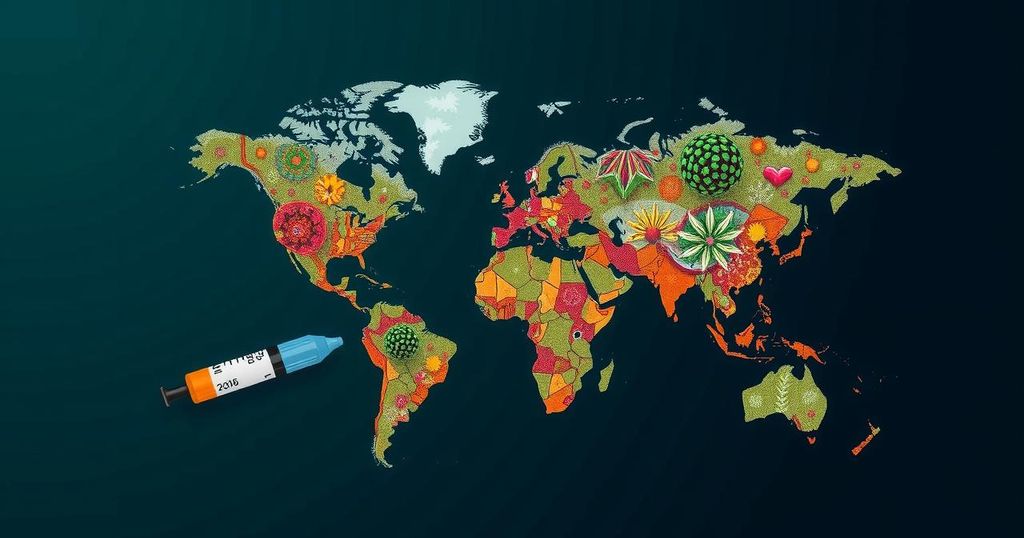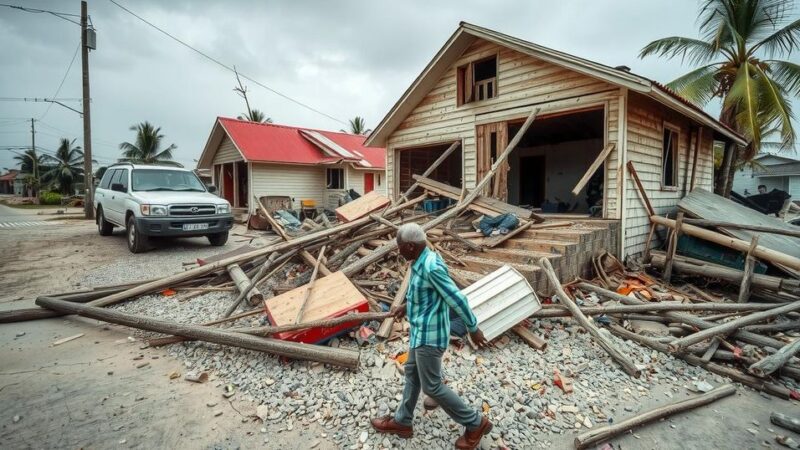Climate change is exacerbating global disease outbreaks while disrupting vaccine supply chains, threatening public health. Extreme temperatures and weather events compromise vaccine efficacy and storage. Concurrently, misinformation surrounding vaccines has surged, leading to increased hesitancy. The combination of these factors poses significant risks to the health and safety of communities, particularly in low-income nations.
Climate change is dramatically transforming the global disease landscape, expanding the potential for illness to spread across new territories. A recent study published in “Nature Climate Change” highlights that extreme weather patterns and rising global temperatures not only foster conditions for disease proliferation but also disrupt vaccine supply chains, threatening one of public health’s most effective preventatives. The World Health Organization (WHO) attributes over 154 million lives saved due to vaccination efforts in the past fifty years, yet the stability of these efforts is increasingly jeopardized by the influences of climate change.
The impacts of climate change are particularly harsh in low-income nations, where conditions have worsened the frequency and severity of disease outbreaks. Cholera, for instance, has seen a resurgence fueled by increasing extreme weather events, enabling the bacterium “Vibrio cholerae” to contaminate drinking water. Jean Kaseya, director general of Africa Centers for Disease Control and Prevention, stated, “Cholera in Africa is a climate change issue.” A significant amount of infectious diseases, especially vector-borne ailments such as dengue and malaria, are predicted to extend their range due to the favorable conditions arising from climate factors.
Vaccines play a crucial role in preventing diseases like cholera and dengue; however, climate change poses serious threats to their efficacy. High temperatures can compromise vaccine protein structures, rendering them less effective, while infrastructure failures during extreme weather events pose significant obstacles to maintaining cold chain storage. The research indicates that adverse reactions post-vaccination could also become more prevalent among populations exposed to extreme heat, further complicating public health responses.
Compounding these challenges are rising levels of vaccine hesitancy, which have escalated since the COVID-19 pandemic. Misinformation about vaccines proliferates across social media platforms, and prominent figures in politics, such as Robert F. Kennedy Jr., have perpetuated anti-vaccine sentiments, which compromises public confidence and safety. Researchers argue this intricate situation could leave communities vulnerable, particularly amid the backdrop of climate-enhanced disease outbreaks.
Despite the mounting evidence of climate change affecting public health systems, experts contend that public trust must be restored through transparency and consistent messaging from those in authority. Efforts must be made to combat misinformation and foster an environment of scientific reliability.
The topic of this article is centered around the complex interplay between climate change and public health, specifically focusing on how climate shifts are influencing the spread of infectious diseases and jeopardizing the delivery and effectiveness of vaccines. The article underscores the growing body of research indicating that extreme weather and changing climatic conditions are creating environments conducive to the proliferation of pathogens, while simultaneously undermining global vaccination efforts that have historically proven crucial in protecting public health.
In conclusion, climate change presents a multifaceted challenge to public health, threatening both the spread of infectious diseases and the reliability of vaccination programs. With rising temperatures and increasing extreme weather events, the risk to vaccine storage and efficacy intensifies, while misinformation regarding vaccines from political figures fuels public hesitancy. To safeguard public health in this new climate reality, a concerted effort must be made to combat misinformation and strengthen public trust in vaccination efforts, alongside a commitment to addressing the root causes of climate change.
Original Source: www.nationalobserver.com







